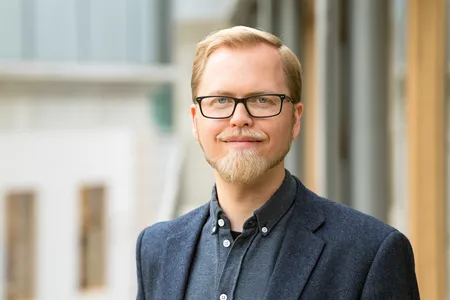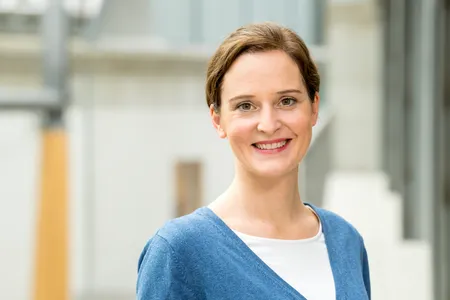Team Assistant
Corinna Wagner
Office: H.402
Phone: +49-89-907-793 – 011
E-Mail: governance(at)hfp.tum.de
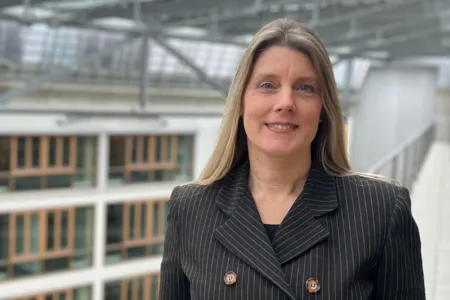
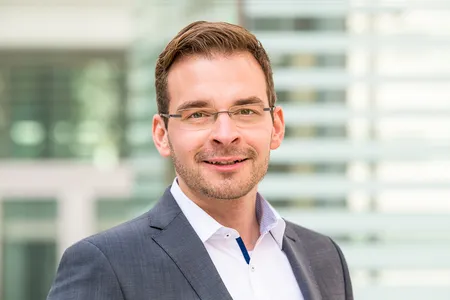
Resume
Dr. Tony Müller is science manager and lecturer at the Chair of European and Global Governance at the Munich School of Politics and Public Policy (HfP). In university self-administration, he most recently served as executive assistant to the reform rector of the HfP as well as to the (founding) dean of the TUM School of Governance (2016-2022). Tony holds a PhD in political science from the Technical University of Munich, and a master's degree in International Economics and International Law & Organizations from the Johns Hopkins School of Advanced International Studies (SAIS), where he was a Fulbright Scholar. He graduated with a bachelor's degree in International Relations from the Technical University of Dresden. Furthermore, he has developed an in-depth understanding of European governance from two different perspectives, while he was working at the German Federal Foreign Office as well as the Delegation of the European Union to the United States.
Publications (selection)
- Heldt, E.; Ríos Camacho, E.; Mueller, T. (2024): In Europe We Trust: Selecting and Empowering EU Institutions in Disruptive Circumstances, Journal of European Integration 46(2): 235-255.
- Mueller, T. (2023): Policy Entrepreneurship in European and Global Institutions: How, Why, and With What Consequences, München: Technische Universität München.
- Mueller, T. (2023): When Policy Entrepreneurs Drift between Levels: The Creation of the International Renewable Energy Agency, Global Policy 14(4): 588-599.
- Heldt, E. & Mueller, T. (2022): Bringing Independence and Accountability Together: Mission Impossible for the European Central Bank?, Journal of European Integration 44(6): 837-853.
- Heldt, E. & Mueller, T. (2021): The (self-)empowerment of the European Central Bank during the sovereign debt crisis, Journal of European Integration 43(1): 83-98.
- Heldt, E. & Mueller, T. (2020): Sinkende Bedeutung der UNO: Stärkung informeller Organisationen, In: Molls, M. & Eberspächer, J. (eds.) Wissenschaft, Vernunft & Nachhaltigkeit: Denkanstöße für die Zeit nach Corona, Technische Universität München.
- Mueller, T. (2019): Die Selbstermächtigung der Europäischen Zentralbank während der Eurokrise, In: Fuest, C. (Hrsg.) Europa neu (er)finden im digitalen Zeitalter? Freiheit, Wohlstand und europäische Integration, Hanns Martin Schleyer-Stiftung.
- SAIS et al. (2016): Torn at the Seam: Migration, Deportations, and Humanitarian Concerns on the Island of Hispaniola: Johns Hopkins SAIS ILAW.
- Müller, T. (2014): The Delegation Mandate of the European Central Bank during the Euro-Crisis - A Principal-Agent Analysis: GRIN Verlag.
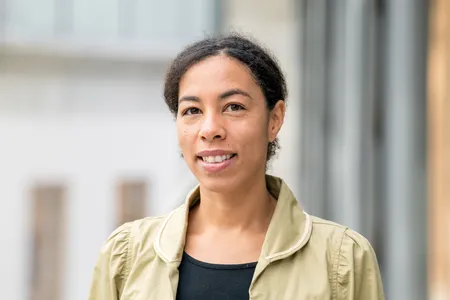
Resume
Dr. Florence Dafe is a political economist at the Chair of European and Global Governance of the Munich School of Politics and Public Policy at the Technical University of Munich (TUM). Her research and teaching cover a number of themes related to international political economy and comparative political economy, with a particular focus on global financial governance. Florence’s research interests revolve around finance and development, especially the domestic and external political constraints that governments in developing countries face in governing their financial sectors. The question which drives her research is how much policy space governments in developing countries have in governing their financial sectors in a context of globalisation and financialisation. Florence has written on the factors which shape the structural power of finance in developing countries, the strategies developing countries pursue in navigating global banking standards, the spread of financial inclusion policies, the political economy of central banking in developing countries, and the development of local currency bond markets in Africa. Prior to joining the Chair of European and Global Governance, Florence was a Fellow in International Political Economy at the Department of International Relations at the London School of Economics and Political Science (LSE) and lecturer in International Political Economy at City, University of London. She is also an associate researcher at the German Development Institute. Florence holds a Masters degree in Development Studies from the LSE and a PhD in Development Studies from the Institute of Development Studies (IDS) at the University of Sussex. Since 1 July 2021 she is also a Honarary Research Fellow at the Centre for Globalisation and Regionalisation at the University of Warwick.
Publications (selection)
- 2023: Local Currency Bond Markets in Africa: Resilience and Subordination, Dev Change, (with Kaltenbrunner, A., Kvangraven, I.H. and Weigandi, I.) https://doi.org/10.1111/dech.12797.
- 2021: Tussle for space: The politics of mock-compliance with global financial standards in developing countries, Regulation & Governance, (with Engebretsen, R.E.H.) https://doi.org/10.1111/rego.12427.
- 2020: Banking on courts: financialization and the rise of third-party funding in investment arbitration, Review of International Political Economy, DOI: 10.1080/09692290.2020.1764378.
- 2019: Ambiguity in International Finance and the Spread of Financial Norms: The Localization of Financial Inclusion in Kenya and Nigeria. Review of International Political Economy, 27(3): 500-524.
- 2018: Fuelled Power: Oil, Financiers and Central Bank Policy in Nigeria. New Political Economy. DOI: 10.1080/13563467.2018.1501353.
- 2018: Localising Sovereign Debt: The Rise of Local Currency Bond Markets in Sub-Saharan Africa. The World Economy (with D. Essers and U. Volz). DOI: 10.1111/twec.12624
- 2018: Balancing Multiple Central Bank Objectives: Lessons from Kenya, Nigeria and Uganda on Walking a Tightrope. In M. Ndulo and S. Kayizzi (eds.), Financing Innovation and Sustainable Development in Africa, 150-181. Newcastle upon Tyne: Cambridge Scholars Publishing.
- 2018: Demystifying Green Bonds. In S. Boubaker, D. Cumming and D. K. Nguyen (eds.), Research Handbook of Investing in the Triple Bottom Line. Chapter 15. Cheltenham: Edward Elgar Publishing (with K. Berensmann and N. Lindenberg).
- 2017: The Politics of Finance: How Capital Sways African Central Banks. Journal of Development Studies, p.1-17. DOI: 10.1080/00220388.2017.1380793.
- 2016: A financial sector to support development in low-income countries. In: S. Griffith-Jones and R. Gottschalk (eds.), Achieving Financial Stability and Growth in Africa, 1-21. Oxon: Routledge (with S. Griffith-Jones and E. Karwowski).
- 2015: Developing local currency bond markets for long-term development financing in Sub-Saharan Africa. Oxford Review of Economic Policy, 31 (3-4), p.350-378 (with K. Berensmann and U. Volz). DOI: 10.1093/oxrep/grv032.
Homepage
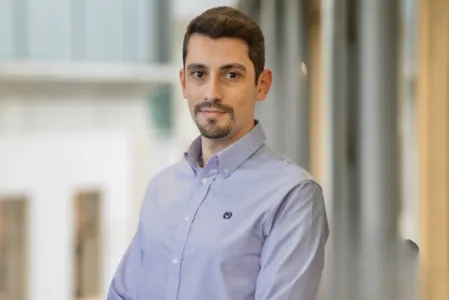
Resume
Dr. Burak Giray is a post-doctoral researcher and lecturer at the Chair of European and Global Governance at the Munich School of Politics and Public Policy. His research and teaching interests include international responses to civil conflicts, with a particular focus on UN interventions and peacekeeping operations. His current research examines how public services provided by UN peacekeepers affect the conflict dynamics. For that, he collects an original dataset on the peacekeeping activities conducted in conflict countries, mining and analyzing the official Twitter accounts of UN Peacekeeping Operations. Before joining HfP, he taught at the Hertie School in Berlin and served as a visiting researcher at Uppsala University. His year-long research stay in Sweden was funded by the DAAD PRIME Fellowship. Dr. Giray earned his Ph.D. in political science from the University of Houston, USA, in 2022.
Publications (Selection)
- Giray, Burak and J. Tyson Chatagnier. (2024). Election Accomplished: Democracies and the Timing of Peacekeeper Drawdowns. Political Research Quarterly, 77(1), 3-16. DOI: 10.1177/10659129231190614.
- Giray, Burak. (2024). Do UN Missions Have an Expiration Date? Ideational Commitment to UN Peacekeeping and the Length of Missions. International Peacekeeping, 31(1), 1-28. DOI: 10.1080/13533312.2023. 2246362.
- Giray, Burak. (2023). Ideational Commitment to UN Peacekeeping and Effectiveness. International Interactions, 49(3), 372-400. DOI: 10.1080/03050629.2023.2184813.
- Giray, Burak. (2022). Public Support for UN Missions and Attacks on Peacekeepers: Evidence From the Democratic Republic of the Congo. Peace Economics, Peace Science and Public Policy, 28(4), 305-332. DOI: 10.1515/peps-2022-0028.
Homepage
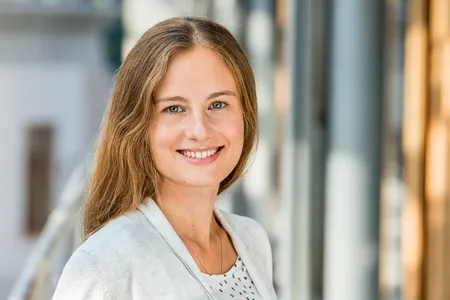
Resume
Tamara Bertl is a research associate and PhD student at the Chair of European and Global Governance since October 2021. Her research interests focus on European integration and the delegation of power to international organizations. She studied Political Science and History (B.A.) at FAU Erlangen-Nuremberg and spent one academic year at Duke University (USA) within the framework of the DAAD ISAP program. She completed her Master's degree in Politics and Technology at the Technical University of Munich. During her studies she was involved in the research project "International Bureaucracies as "Runaway Agents"? How Organizational Structure Affects Agency Slack" by Prof. Dr. da Conceição-Heldt. She gained practical experience at the BMW Group, the Representation of the Free State of Bavaria to the European Union in Brussels and the Federal Foreign Office in Berlin.

Resume
Patrick Baldes is a research associate and PhD-candidate at the Chair of European and Global Governance at the TUM School of Social Sciences and Technology. His doctoral research focusses on the regulation of Big Tech and is funded by the TUM Institute for Advanced Studies (TUM-IAS), where he is a member of the Focus Group on Comparative-Historical Perspectives on Platform Capitalism. His supervisors are Prof. Dr. Eugénia da Conceição-Heldt from the Technical University of Munich (TUM) and Prof. Kathleen Thelen, Ph.D. from the Massachusetts Institute of Technology (MIT). Patrick Baldes is a member of the EU-US Trade and Technology Council’s Working Group 5 on Data Governance and Technology Platforms. Prior to joining TUM, he gained extensive work-experience as an international public sector consultant in the areas of public policy evaluations, strategy and reorganisation. In his former position as deputy project manager, he conducted studies and reports for the European Commission on European structural and investment funds, financial regulation and competition policy. He has coordinated teams across Europe and has regional experience in the US, China and the Gulf states. Patrick Baldes holds a B.A. in Politics and Public Administration from the University of Konstanz and a M.Sc. in International Political Economy from the London School of Economics and Political Science (LSE).
Publications
EUROPEAN COMMISSION (2018), Study on the coordination and harmonisation of ESI Funds and other EU instruments.
EUROPEAN COMMISSION (2019), Report on the Operation of the Alternative Investment Fund Managers Directive (AIFMD).
EUROPEAN COMMISSION (2020), Retrospective evaluation of state aid rules for RDI and the provisions applicable to RDI state aid of the GBER applicable in 2014–2020.
Professional Certifications
- IBM Data Science Professional
- Professional Scrum Master (PSM I)
- Professional Scrum Product Owner (PSPO I)
- PRINCE2® Practitioner
